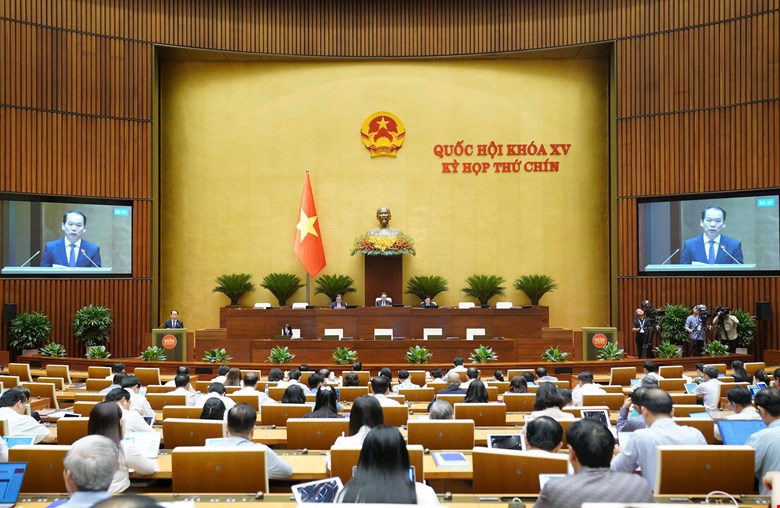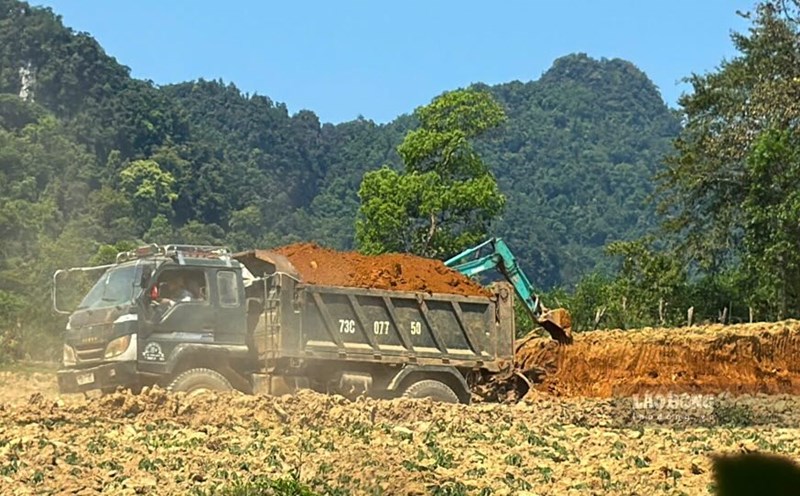The above information was stated by the Chairman of the National Assembly and Justice Committee of the National Assembly Hoang Thanh Tung in the report of the Examination of the Law on the Law on Amending and Supplementing a Number of Articles of the Law on Organization of the People's Court (TAND) at the 9th Session of 8.5.
Chairman Hoang Thanh Tung said that the Committee agreed on the organization of the People's Court including the Supreme Court, the provincial People's Court, and the regional People's Court (military courts were kept unchanged). End of activities of high -level People's Courts and district People's Courts.
The Committee basically agreed to redefine the tasks and powers of each level of the Court.
Accordingly, the Supreme People's Court is assigned the task of appraising criminal cases where the judgments and decisions of the provincial People's Court have not yet been legally valid and are appealed or appealed; the director of appraisal and re-appraisal of judgments and decisions of the provincial People's Court that have been legally valid and are appealed (2 such tasks are received from the High People's Court).
There are opinions suggesting assigning the Provincial People's Court's Judicial Committee to be the director of appraisal and re-appraisal of the judgment and decision of the Provincial People's Court that has come into legal effect that has been appealed; other opinions suggesting assigning this authority to the Supreme People's Court's Appellate Court to reduce pressure on the Supreme People's Court's Judicial Council.
The provincial People's Court has the first instance of the criminal case in accordance with the Law; Appeals all the judgments and decisions of the regional People's Court have not been valid for appeal and appeal; Cassation, re -examination for the judgments and decisions of the regional People's Court has been protested by the region (this task received from the high -level People's Court).
The People's Court of the area for first instance trial of criminal cases shall comply with the provisions of law; first instance trial of all civil and administrative cases and incidents and resolve other matters under the authority of the Court.

The Committee approved the establishment of the Supreme People's Court's Appellate Courts to perform new assigned tasks on the appeal trial of judgments and criminal decisions of provincial-level People's Courts that have not yet come into legal effect and are subject to appeal and appeal.
Basically consistent with the proposal of the agency submitting the establishment of economic court in the regional People's Court; Intellectual Property Court, bankruptcy in a number of regional People's Courts in big provinces and cities are the country's economic and financial center.
However, there are opinions suggesting clarifying the criteria and conditions for establishing the Bankruptcy Court and the Intellectual Property Court at some regional People's Courts; there are opinions in favor but there are concerns about meeting the human resources with high qualifications and expertise arranged at these specialized courts.
The Committee basically agreed with the proposal to increase the number of Supreme People's Court Judges from 13 to 17 people (according to current law) to 23 to 27 people to have enough human resources to perform the task of judging the newly accepted director of appraisal and re-appointment from the High People's Court, ensuring the quality and trial duration.
The Committee basically agrees with amending and supplementing regulations on conditions to expand the source of subjects for consideration and appointment of Supreme People's Court Judges in special cases decided by competent authorities.
Accordingly, the personnel proposed for appointment must be People's Court Judges, have been Head of the Professional Department at the Supreme People's Court for 5 years or more and the number of people proposed for appointment under this regulation must not exceed 10% of the total number of Supreme People's Court Judges.
This regulation is necessary to build a team of Supreme People's Court Judges who are good at their expertise and profession, have political courage, moral qualities, professional responsibility, impartiality, and professionalism to meet the requirements of tasks in the new situation as set out in Resolution 27-NQ/TW.











